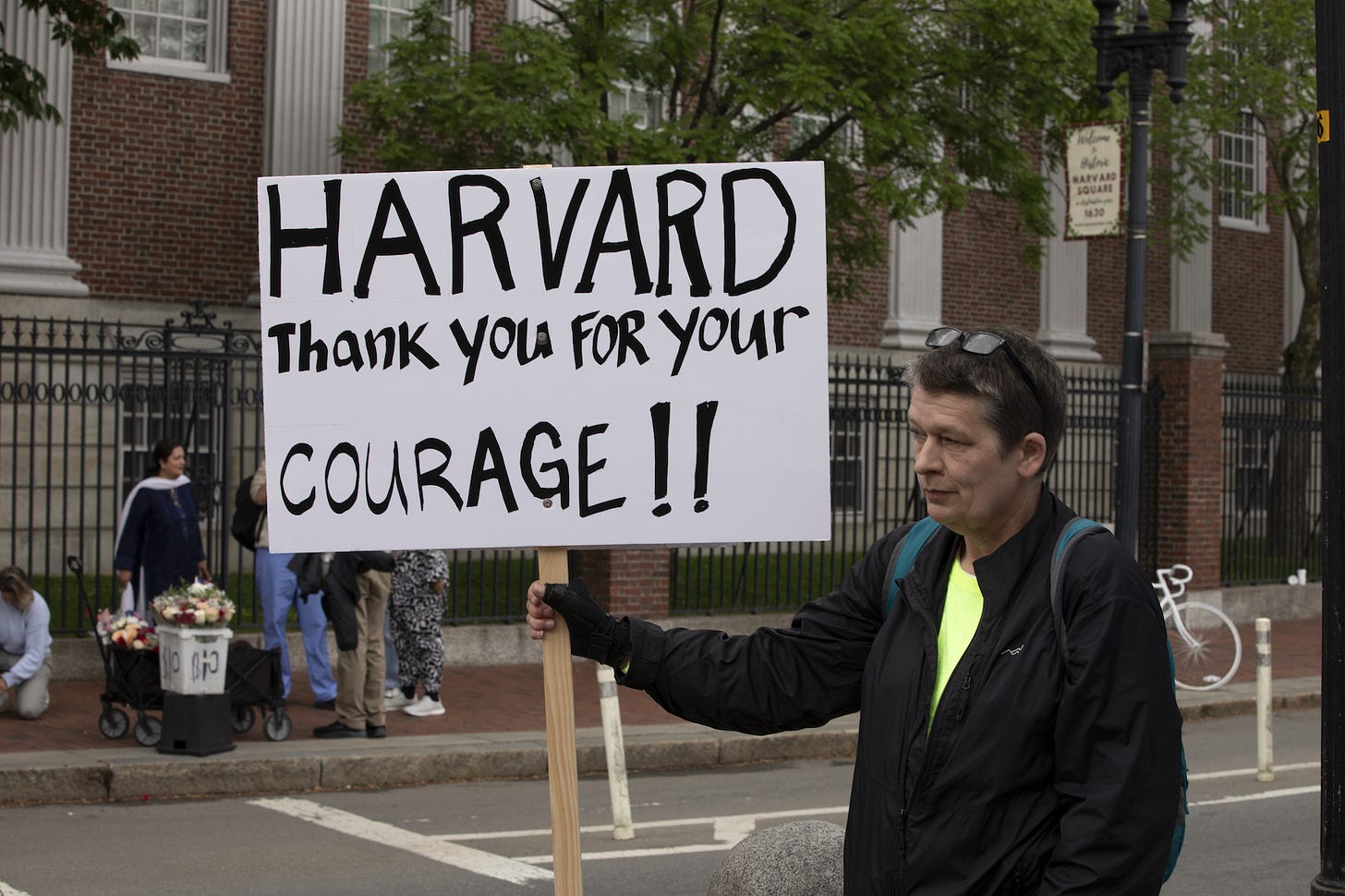Trump's Harvard strategy: "Shoot first, aim never"
In today's morning readings, Harvard's lawyers lampoon Trump's attacks, and Kilmar Abrego Garcia's attorneys unpack the admin's "shocking" position.

Unlock the latest updates on laws and landmark court cases — all made understandable, compelling and relevant to your life.
Sometimes, legal writing is so incisive that a simple quotation isn’t enough.
Introducing: All Rise News morning readings, an occasional catalogue of excerpts from court documents worth flagging as you start your day.
Today’s series begins with a new legal brief by Harvard’s lawyers lampooning Donald Trump’s “shoot first, aim never” approach to the university.
Harvard’s attorney Steven P. Lehotsky, the lead author of the brief, asked a judge to block Trump’s funding freeze in a motion for summary judgment. If granted, the motion would restore the university’s funding without the need for a trial.
Trump wants nothing less than a federal takeover of the university, the brief argues.
“All told, the tradeoff put to Harvard was clear: Allow the government to micromanage your viewpoints and your academic institution or jeopardize your ability to pursue medical breakthroughs, scientific discoveries, and innovative solutions. Because Harvard would not allow itself to be taken over by the Government, Harvard rejected the government’s demands on April 14, 2025.”
Harvard notes that the funding Trump wants to freeze has no connection to his excuse for the penalty.
“The government’s across-the-board freeze and terminations are unreasonable and unreasoned. The government asserts antisemitism concerns as the basis for its actions but fails to explain how the termination of funding for research to treat cancer, support veterans, and improve national security addresses antisemitism. The government further fails to acknowledge, let alone engage with, the dozens of steps Harvard has taken and committed to take to address antisemitism and bias.”
You can read the full, 62-page legal brief here.
The “shocking” heart of Kilmar Abrego Garcia’s case
Kilmar Abrego Garcia’s lawyers get to the core of the case in the opening paragraphs of their legal brief opposing the Trump administration’s motion to dismiss.
“The government asks this court to accept a shocking proposition: that federal officers may snatch residents of this country and deposit them in foreign prisons in admitted violation of federal law, while no court in the United States has jurisdiction to do anything about it. This court, the Fourth Circuit, and the Supreme Court each rejected that jurisdictional gambit. All three courts unanimously affirmed a preliminary injunction that the government must facilitate the return of Kilmar Armando Abrego Garcia from El Salvador to the United States. […]
“Unfazed, the government’s motion to dismiss reprints—nearly verbatim—the same jurisdictional arguments those courts rejected. The government’s position that courts cannot order it to aid the return of U.S. residents it unlawfully removed to foreign cells was ‘eye-popping’ before. … Repetition does not make it less so. Jurisdiction is not a game of ‘best two out of three.’ Once decided, it stays decided unless the facts or the law change. Neither has.”
Read the full, 26-page legal brief here.
On refunds for Trump’s tariffs
The Justice Department persuaded a federal appeals court to temporarily pause a ruling blocking Trump’s tariffs by promising a full “refund, plus interest” on those levies if the government loses.
In a legal brief on Monday, attorneys for small businesses called that temporary solution “insulting.”
“It would not cure these irreparable harms to plaintiffs in the slightest. An eventual refund is of little comfort to plaintiffs, who face imminent irreparable harm, including existential threats of bankruptcy and permanent damage to their business, whether by reputational damage, loss of goodwill, or harm to relationships with suppliers and customers. What good is a refund of the tariffs paid to a business that is bankrupt and no longer exists? How can a refund address the loss of customers, reputational damage, or loss of good will caused by having to cut back on certain products or having to raise prices? And what good is a refund for tariffs paid to a company that spent millions of dollars and hours redesigning its supply chain because the tariffs made it difficult or impossible to continue their relationships with existing suppliers?”
Read the full, 23-page brief here.




Appreciate this new morning read!